- Home
- Our strategy
-
Our stories
-
More Health
- A guide to stop rabies in Southeast Asia
- A platform for chronic patients’ needs in Spain
- Advancing health equity in rural Mexico
- At the heart of health equity in the U.S.
- Better access to healthcare for Indigenous Peoples in Canada
- Coaching patients in Mexico to improve health
- Ecological stoves safeguard family health in Mexico
- How mobile medical clinics tackle health equity Down Under
- Joining forces to fight diabetes in Mexico
- Moving towards a rabies-free world
- Partnering in France for better healthcare solutions
- Soaring to save lives: Tackling health disparities in Africa via drone delivery
- Striking a blow against strokes in Brazil
- Total stroke solutions for China
- Traveling the LastMile in Kenya
- Veterinary care for pets of people experiencing homelessness in the UK
- Winning time with ‘stroke-ready’ hospitals and heroes
- Young and old unite against strokes in Brazil
-
More Potential
- Hope for youth with disabilities in South America
- Making More Health: Engaging with social entrepreneurs for sustainable health solutions
- More women for entrepreneurial health solutions
- Volunteering at Boehringer: Global impact through local engagement
- Why belonging matters – to all of us
- Women in STEM: Passion for science
-
More Green
- Clean Air Champions: Tackling air pollution in UK healthcare
- Looking at supply chain emissions through the magnifying glass
- Making our medicines greener through eco-design
- On the path to decarbonization: How we reduce our emissions
- Promoting production circularity with a powerful partnership in Denmark
- Taking action to reduce plastic waste in Japan
- Waste reduction and sustainable energy in Germany
- Water stewardship: Every drop counts
→ -
More Health
- Our key figures
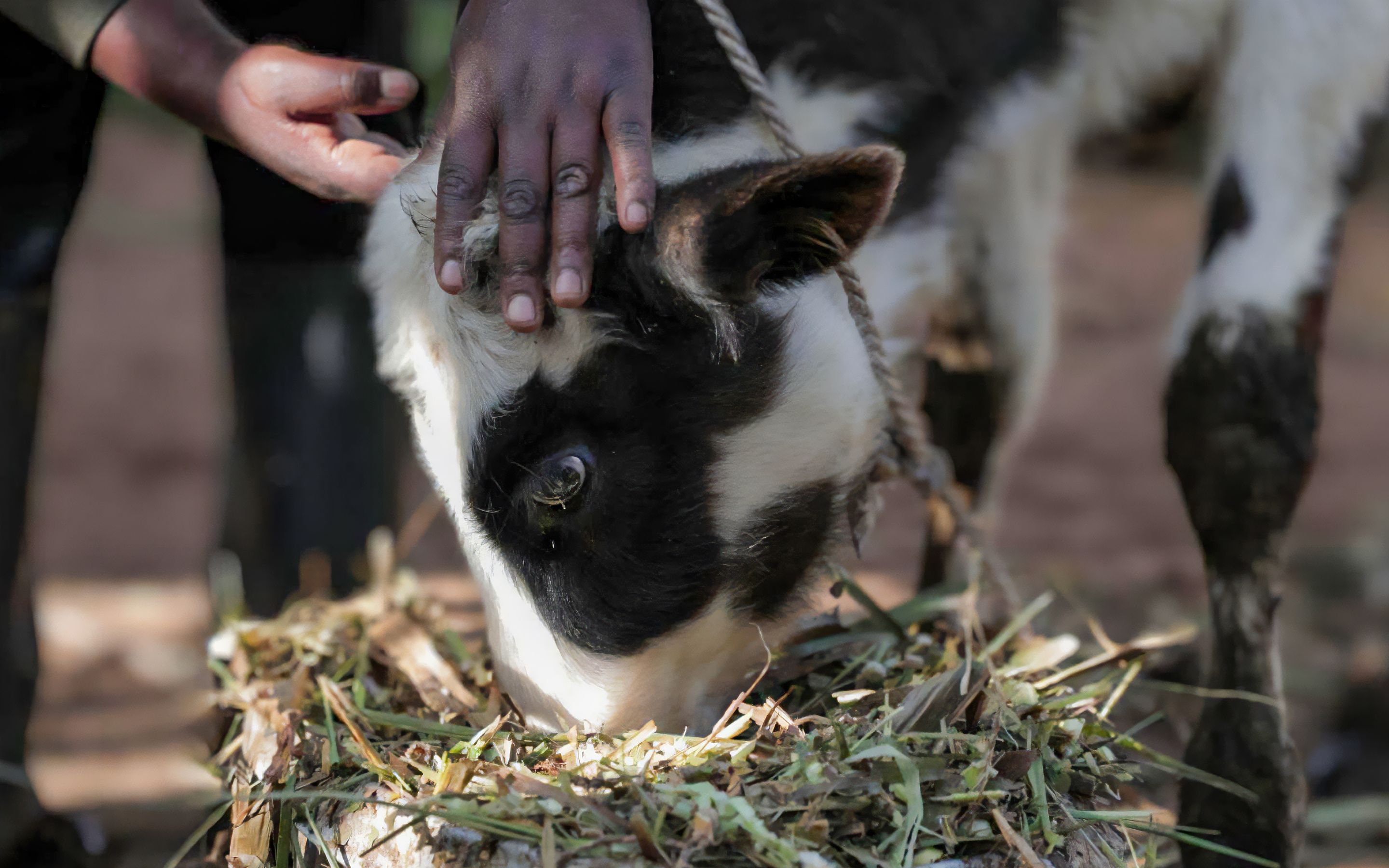
Traveling the LastMile in Kenya
Communities that are considered underserved often struggle to attain healthcare services. One of those groups are smallholder farmers in remote areas of Sub-Saharan Africa who depend on livestock for their livelihood, while facing considerable barriers to access vital animal health resources. Over the last six years, more than 40,000 farmers have been supported by Boehringer Ingelheim’s LastMile program. We met one of them.
Grace Njeri Kamau just finished milking her cows at her small family farm on the hills overlooking Lake Naivasha. “When I came here, I had a dream,” she shares. Grace and her husband David Kinyanjui Giathi own a small plot of land of less than three acres on which they farm kale, spinach, and other crops. For Grace, the dream she had since she first saw the farm her husband inherited was being able to sell the milk from her own cows to the local market and improve her family’s life. In particular, to finance her children’s education and give them brighter prospects.
Even in a fertile region like Nakuru County, above East Africa’s Great Rift Valley, three acres is not enough land to provide for the livelihood of a family of six on crops alone. To support them and their four daughters, Grace has been working the farm, while David drives a Matatu taxi on the dangerous roads towards Nairobi. The job often takes him long distances away from the farm, limiting the time he is able to spend with the family.
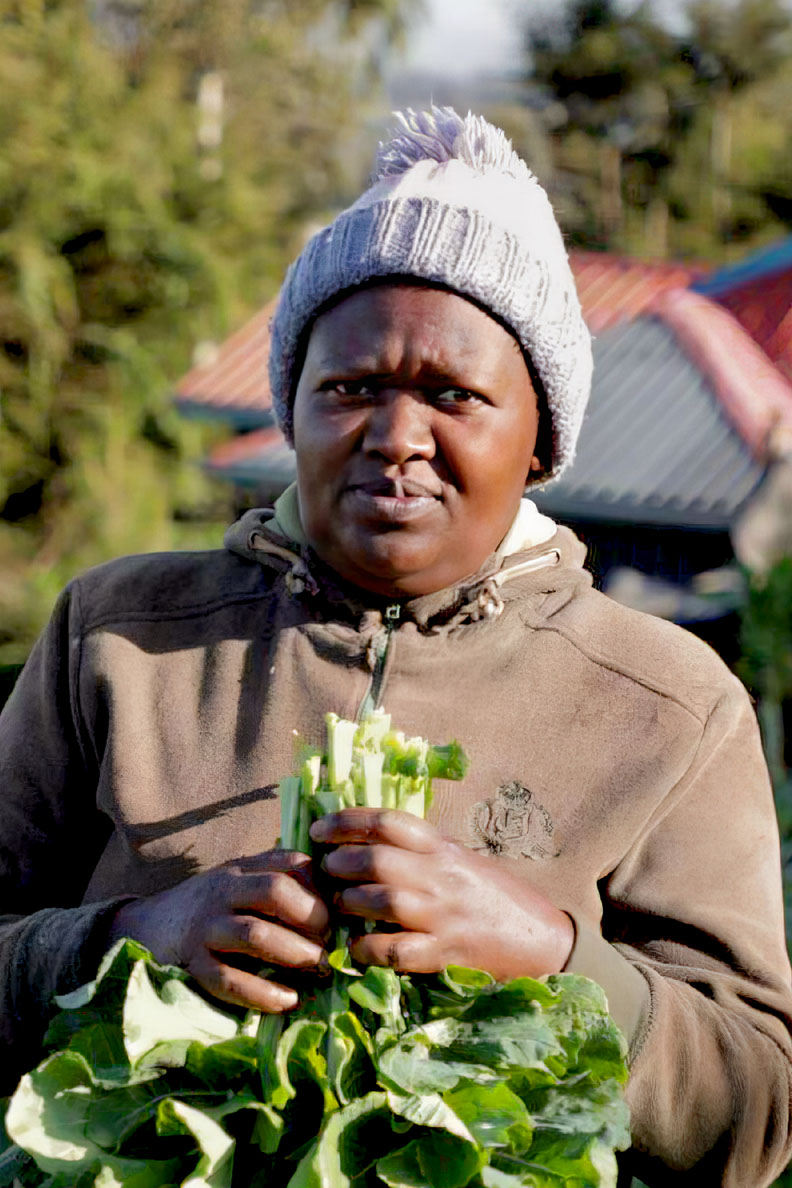
Many smallholder farmers like Grace Njeri Kamau live at or below the poverty line.
“Smallholder farmers in Kenya are often severely limited by the small plots of their farms. Combined with the high population pressure on the available farmland in comparatively densely populated areas, it becomes a real challenge to make available land sustain daily needs, like healthcare.“
Dr. David Chemimir Business Unit Manager, SSA/SD4G at Boehringer Ingelheim IMETA and LastMile Project Manager
When animals are healthy, humans are healthier too
Smallholder farmers play a vital role in sustaining food security in Africa, as they do for over two billion people worldwide. To empower these farmers, providing education, resources, and sustainable practices contributes to a more resilient agricultural landscape. By connecting farmers with retailers and veterinarians, the access program LastMile fosters an ecosystem of quality animal health services. This, in turn, contributes to the local economy and strengthens the communities served.
Like Grace and David, many smallholder farmers in Sub-Saharan Africa live at or below the poverty line, with less than $1.90 USD per day to sustain themselves and their families. Additionally, they face considerable barriers to access information and resources for their animals’ health and subsequently their own health. From road infrastructure to educational resources, the challenges for Kenya’s smallholder farmers are immense. In remote areas such as these, the connection between thriving animals and thriving humans is particularly strong. Enhanced access to knowledge, products, and services can offer entire communities a route to escape poverty.
Building capacity for underserved communities
For Grace, turning her dreams of improving her family’s lives into reality proved to be more challenging than she had anticipated. “We went to Nyandarua County and bought a cow that was already older. We were told it would produce 10 liters, but when we brought it home, it only produced two liters. We had to sell it at a loss. But with Serah’s help, we got to start again and bought the cow we have now.” Serah Gatheru works as a LastMile Livestock Service Provider (LLSP) with the LastMile program. For two years she has been regularly visiting the farm and has advised Grace and David on how to keep their animals healthy and productive.
Since the program’s launch in 2018, LLSPs like Serah have engaged thousands of farmers. The LLSPs act as a central connection point between the farmers, veterinarians, and local retailers of animal health products to build a network able to support the community’s animal health needs. The program seeks to engage groups of farmers and co-operatives to generate a broad reach and connect as many farmers as possible to service providers. To the smallholder farmers mostly living in remote areas that are often underserved by veterinarians and that lack other animal health resources, what LLSPs bring first and foremost, is vital knowledge, as David explains: “LastMile has significant impact as an educational program that enables access to information. The power of knowledge is the biggest gift we can give. Each farmer will be educated on how to feed his animals, what role genetics plays, how to improve productivity, and how to best take care of their livestock. When we set out, we had hoped to reach 30,000 farmers, but now we have reached over 40,000.”
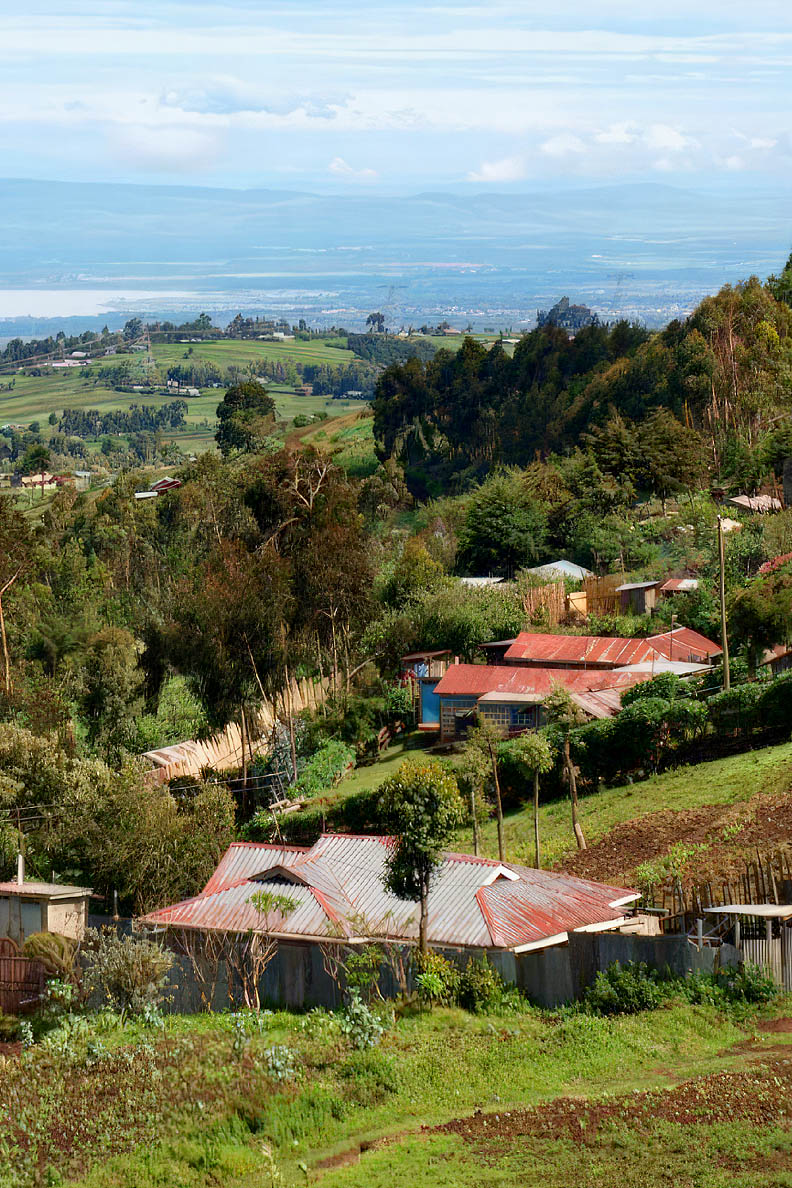
Smallholder farms at the edge of the Kinangop Plateau near Lake Naivasha, Western Kenya.
40,000
farmers have been reached by the LastMile program
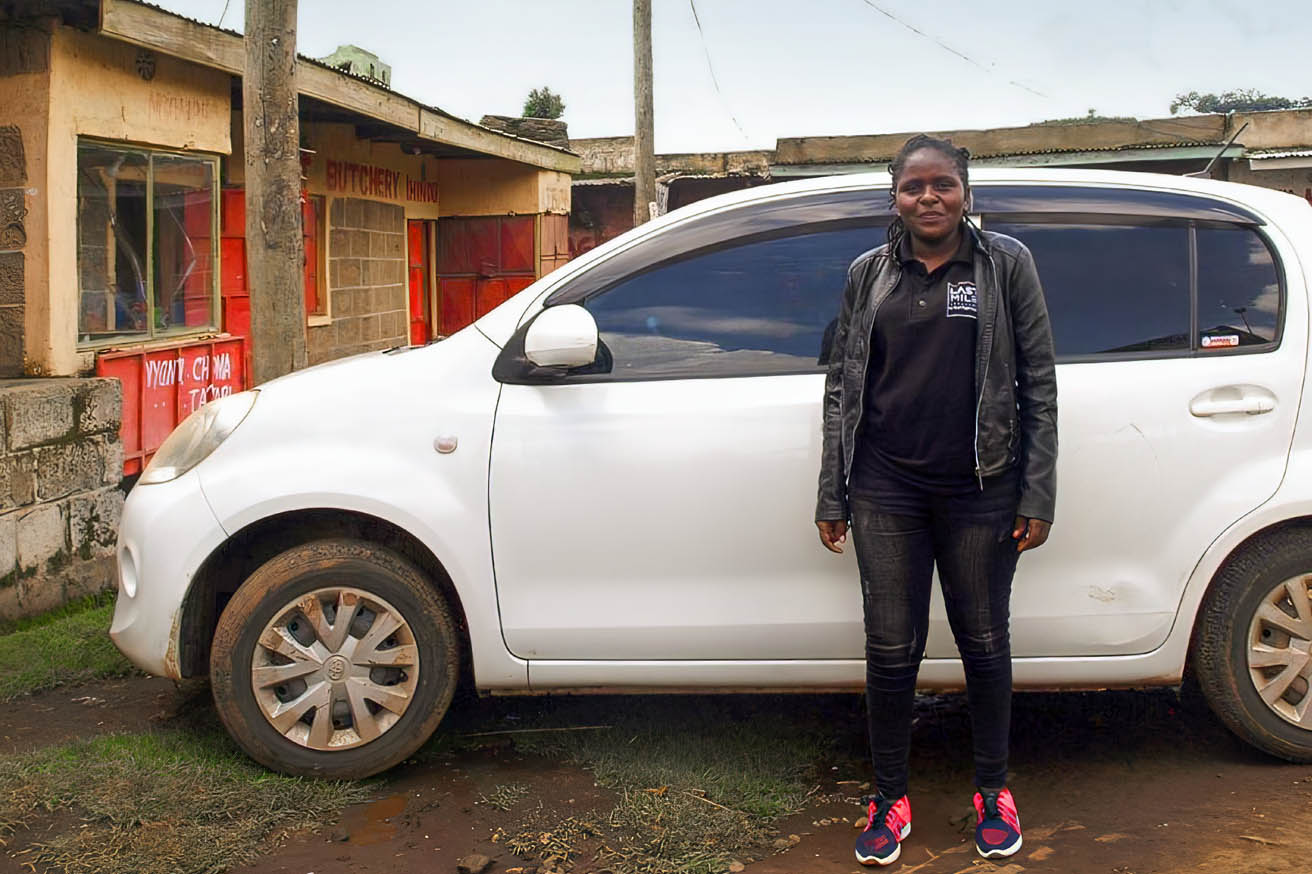
Serah Gatheru has to drive up to 80 km for each famer visit on the often difficult to navigate roads of
Western Kenya.
Removing barriers to health equity
Initially, Serah chose to get her qualification as a veterinary technician to take advantage of the employment opportunities in Kenya’s large agricultural sector. “But working with smallholder farmers and the LastMile program has really shown me the value of my work and how much satisfaction it can bring,” she shares.
Together with Serah, Grace has maintained her animal’s health over the past two years, despite various diseases affecting much of the cattle in the community. Implementing a tailored feeding plan for proper nutrition, ensuring better availability of products and medication at her local retailer, and strictly adhering to hygienic practices for housing and milking, has helped Grace prevent serious health problems in her animals.
Today, the dream of a successful milk business has become a reality for Grace. Since her initial contact with Serah and the LastMile program, the farm has added another productive milk cow and is about to add a third. They are now pursuing bigger ambitions to make the farm a true family venture which will be able to support all of them, allowing David to give up his job as a driver and be on the farm full-time, as well as financing a good education for their daughters.
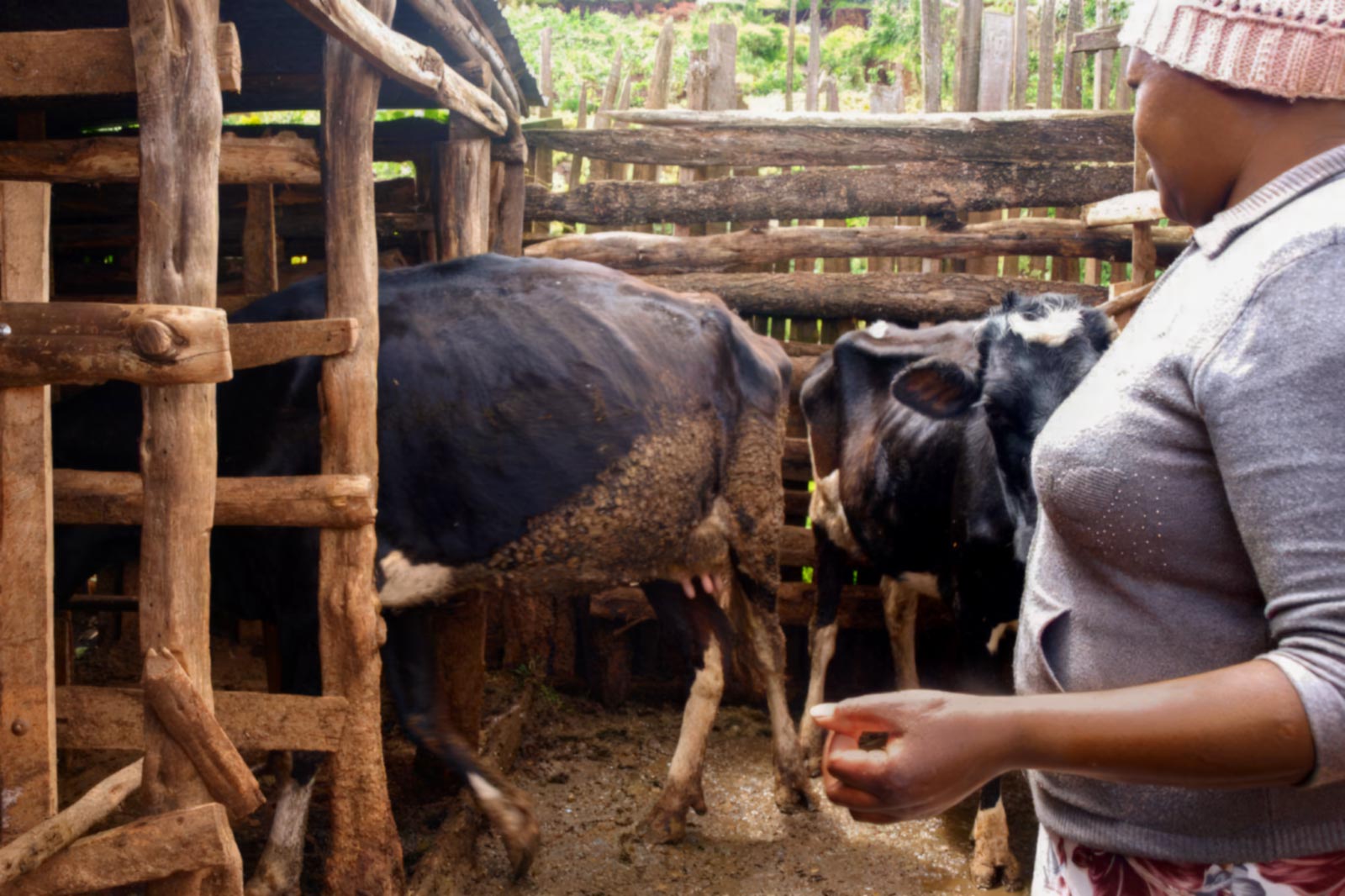
Good animal husbandry practices as well as access to knowledge, products, and services were key to Grace Njeri Kamau’s success.
Empowering individuals to strengthen entire communities
Though this may seem like an individual success, it benefits the surrounding farmers as well. Prevalent diseases like mastitis or foot and mouth disease are often transmitted between farms, so that multiple farms are affected simultaneously. This can lead to drastic drops in productivity, thus endangering the livelihoods of the entire community.
Through education, access to resources, and a supportive network, LastMile empowers smallholder farmers to improve their livelihoods. Enhancing their productivity and connecting farmers with vital services creates lasting positive change for this underserved group. “The local community are good, hard-working people that want to utilize the little land they have well. We are introducing our neighbors to LastMile, and the benefits speak for themselves.” Together with LastMile, Grace has set an example the community is looking up to.
“We are introducing our neighbors to Last Mile and the benefits speak for themselves.“
Grace Njeri Kamau, smallholder farmer in Nakuru County

